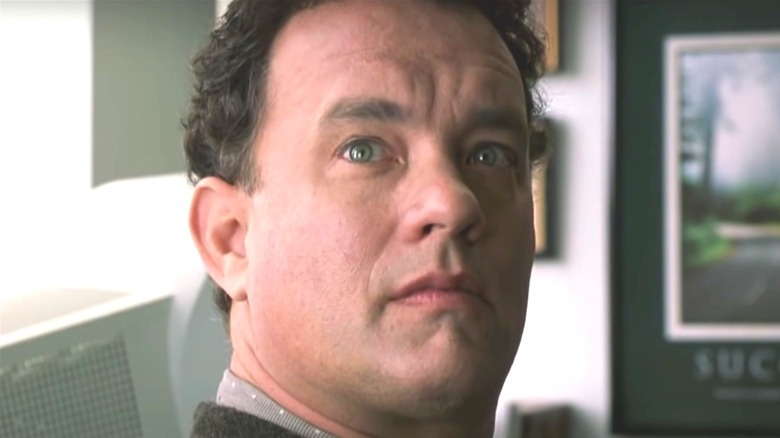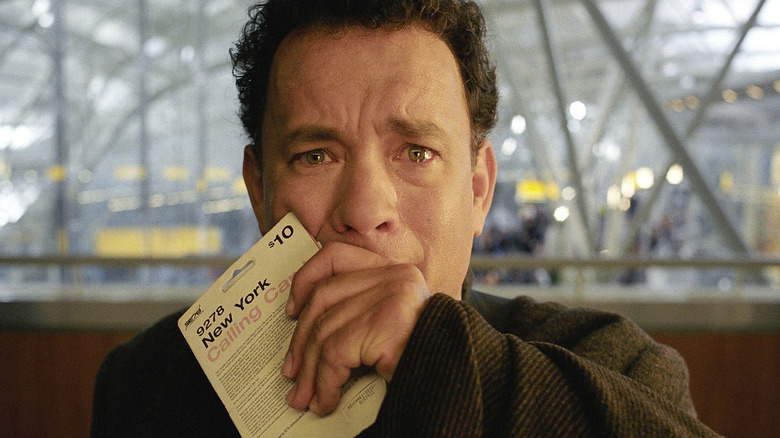The Ending Of The Terminal Explained
In Steven Spielberg's 2004 dramedy "The Terminal," Viktor Navorski (Tom Hanks) becomes trapped in an airport terminal after his native country Krakozhia breaks out into a civil war and is no longer considered an independent nation by the United States. Stranded with only his luggage and a Planters peanut can, Viktor takes up residence in the airport and bonds with several of the employees who work there, as well as a flight attendant named Amelia Warren (Catherine Zeta-Jones) who passes through frequently.
The acting field commissioner of the airport, Frank Dixon (Stanley Tucci), initially allows Viktor to stay in the terminal until the situation in Krakozhia blows over, but he eventually begins to see Viktor as an increasing annoyance and a threat to his chances for promotion. He does his best to encourage Viktor to leave, something the man will not do for reasons he will not share. The film's finale sees Viktor about to be detained on Dixon's orders — until things take a turn. Here's what happens at the ending of "The Terminal" and what it means.
A promise made.
In a quiet moment earlier in the film, Amelia questions Viktor about who he is and why he came to America. Viktor reveals that the Planters can contains a copy of the famous "A Great Day In Harlem" photograph of 57 jazz musicians that was published in Esquire magazine. Viktor's father was a jazz fan, and he was collecting autographs from each of the musicians pictured in the photo. Unfortunately, he died before he could get the signature of the last name on his list: jazz saxophonist Benny Golson. Viktor came to New York to finish what his father started.
Nine months later, when the war in Krakozhia ends, Viktor has the opportunity to go home. However, in the film's final scene, Viktor is about to leave the airport but is stopped at the door by a cadre of security officers, whom Dixon orders to arrest Viktor. Instead, they let him go, allowing him to escape the airport by taxi and find Golson at a hotel in the city. Viktor obtains the autograph, then hails a taxi and informs the driver simply, "I am going home."
A promise fulfilled.
"The Terminal" is a dramedy that explores the confusion, horror, and absurdity of being an ordinary person caught in the wheels of bureaucracy, and the confrontation with Dixon illustrates the casual cruelty of bureaucrats enforcing draconian policies on people caught in difficult situations while seeking refuge. Viktor endures the indignities and cruelties Dixon throws at him, not only to spare himself from having to return to his war-torn country but also for the simple fact that he made a vow to finish what his father started. Viktor's quest to obtain the last signature he needs to complete his collection signifies the unique, individual stories that are always ongoing even when enormous geopolitical forces are at play.
With his mission complete and the war in Krakozhia over, Viktor can return home knowing he not only honored his father's memory but informed Benny Golson that his father was a great admirer of his music. The film's happy ending reminds the audience of the power of love to endure and of the enduring dignity of the human spirit in times of crisis.


